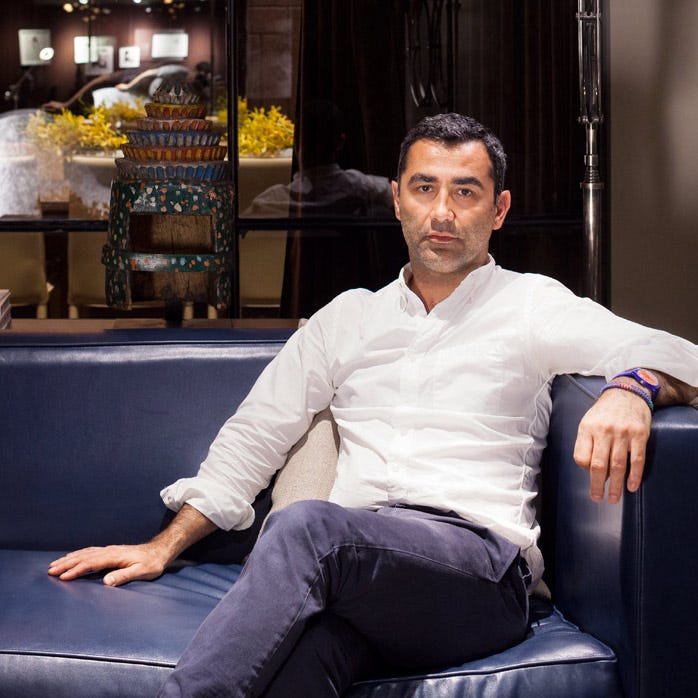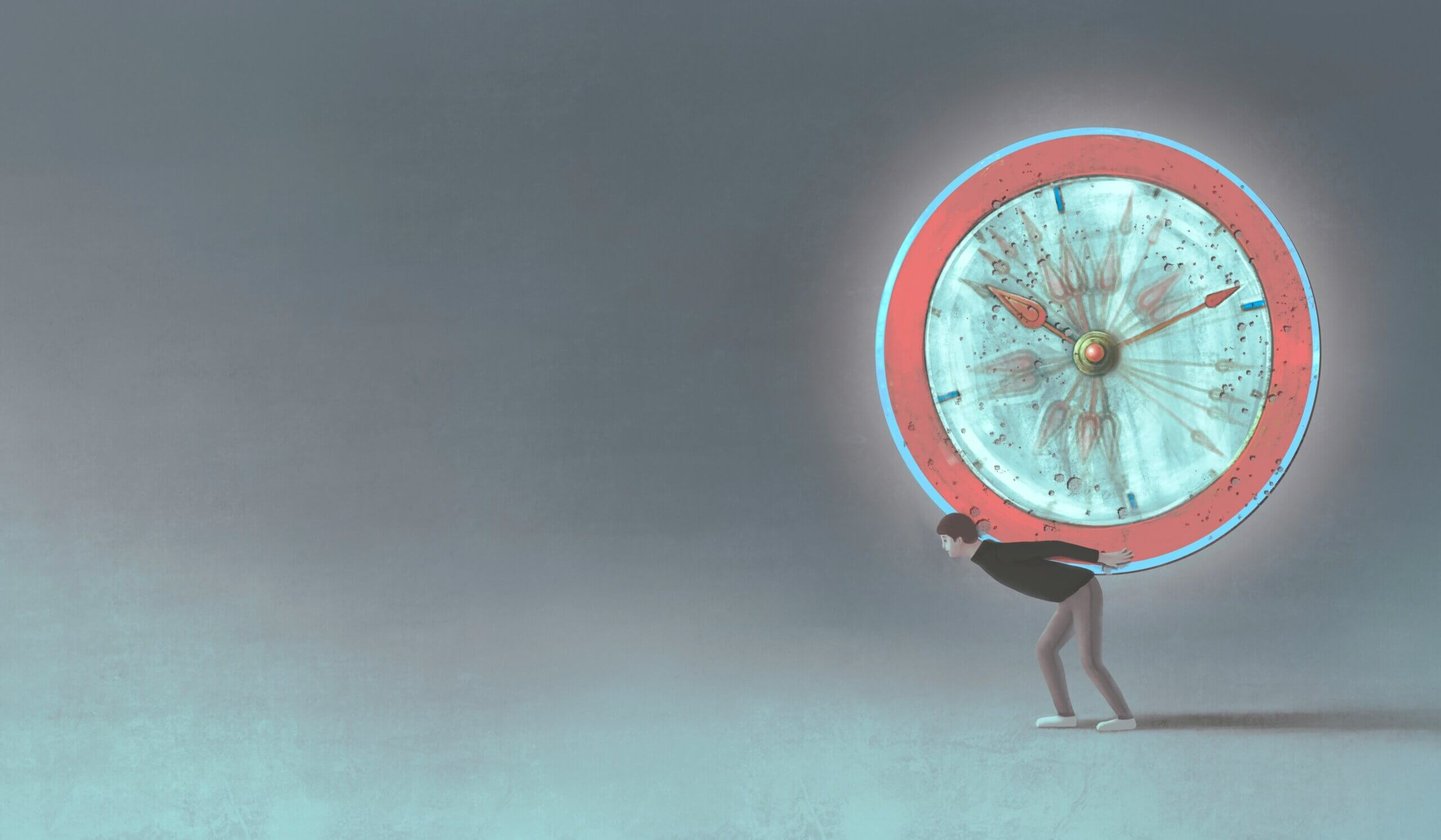I get it. You have COVID ennui. I do, too, but as long as we have our health and our jobs, both 2020 and 2021 deserve nothing but to be met with gratitude.
Not everyone is as lucky.
The truth is, until last year sent us hiding, we were all running at full tilt with our default lives, scarcely stopping to smell the flowers, or survey the garden. And no matter how good our lives may be, personally, we’d be hard-pressed not to see that a lot of our systems are showing some pretty enormous stress fractures. That’s bad news for everyone, even if some of us still have a job, our health, and a solid bank account, to boot.
Today
Before we celebrate the good news, let’s review what’s broken. I’ve written at length about the fact that our man-made systems for policing, politics, education, healthcare, law, social media, conventional media, work and economics are utterly flawed, and that for the majority of people, there’s no clear workaround. Police menace, arrest and kill countless people they have no businesses even speaking to. Politics is rotten to the core. At least politicians are less circumspect about it these days, as the gloves continue to come off, globally, revealing their inner ugliness. Education is stuck in a 19th century paradigm that ill prepares children for adulthood, and simultaneously pays an embarrassing pittance to the teachers who increasingly raise our kids. Healthcare? Well, we’ve seen its shortcomings in spades, this past year. Either you’re rich and connected enough to command decent care, or… good luck. It goes well beyond coronavirus. Law? The whole field is a symptom of our abject failure as humans to trust one another, find empathy, build bridges when we disagree, and act like adults to find common ground, and solutions, rather than punishments. Social media is driving children to kill themselves, while also killing the few remaining brain cells the rest of us have left. Certainly, it’s turning us all into decreasingly interesting, easily distracted, grossly misinformed, hyperbolic and intolerant narcissists. Conventional media? Intelligent print publications have gone the way of the record — a niche market — and their audience is a tiny subset of people who still read long form. #elitism And work? Congrats. Now everyone knows that no one likes a daily commute, that being saddled with a five-year inflexible lease that’s no longer a fit by month 2 is no longer necessary, and that the majority of the time we spend in our seats at work, adjacent to other silent workers, is not only unnecessary, it’s distracting, when we really should only be there in times of focused collaboration and training, because work’s bonding and loyalty capital is built when we leave work, to break bread, have a drink, or get to know one another.
And economics itself is what drove most of these things to be broken in the first place, as the race to amass industrial-scale wealth pitted neighbor against neighbor in response to a false narrative of scarcity, turning all of life into a competition it was never meant to be in the first place, when in fact there are solutions to everything that leave no one outside in the cold, if only we chose to avail ourselves of them. It is our choices that create conflict, not the lack of alternative options.
No one has to lose. We simply made it so.
Which is why I’m in no hurry to keep any of this stuff. It’s time for a better mousetrap.
Tomorrow
So where does all of this leave us? If everything is broken — and it is, woefully, broken — then where’s the justification for optimism?
There’s tons of it to be had; because everything is fixable, and when we finally do, it’s all going to be much, much better.
Ok; first and foremost, you don’t believe it. You think it’s all talk; that nothing’s perfect, anyway, and that “better the devil you know than the devil you don’t,” to steal R. Taverner’s phrase. You don’t like change, undue risk, or the pain that uprooting causes; while you do like many aspects of your life, as it is, thank you very much. What you don’t like is COVID, and what it’s done. You don’t like not being able to socialize outdoors or visit family, go to restaurants and bars, do fun stuff with the kids, spend time with your coworkers, plan trips, see movies and concerts and sports matches, shop, and most of all, not fear dying because you didn’t maintain social distance from other humans.
I get it.
But.
This is exactly the time — and serial entrepreneurs all know this — when the smart people invest time in reinventing parts of themselves and their business enterprises in lockstep with the times, so that when things do get better — which is around the corner — they are positioned to do partake in it.
It’s not only businesses. The power of people to bring about change has never been greater. The Internet is the greatest network of resources ever conceived. We can collaborate with literally anyone on Earth. New paradigms in education and in work are already proliferating. Police are facing scrutiny they never have, before, as are governments. Social media — admittedly a scourge and a blessing — is empowering people to fight corruption, find inspiration and community. New media that are already—in a way—supplementing education, and may well replace it eventually, are proliferating. Energy startups of all flavors are disrupting conventional fossil fuels.
We are turning a corner, and it’s a huge one.
More on all of them, below.

My friend Nima and I took a decidedly European stroll for a few hours around Fort Greene Park, in Brooklyn, just two days ago. Nima is a serial entrepreneur, and one of the most interesting people I know. He and I got into a long discussion about the democratization of everything.
Work is already now in our pocket, as are all the connections we need to incubate whatever. One third of the work force is already self-employed, and we are nearing the point at which more people will be networked gig economy workers than not. Personally, I can’t wait.
The doctor is going online, as medical assessment—a forced measure, during COVID whose origins preceded it, regardless—is reaching every corner of the city, without overhead and travel time. Moreover, DNA and computational analysis will develop therapies we could’ve only dreamed of just a few years ago, as algorithms stabilize biology.
Clean energy storage — a field Nima recently entered — will make every homeowner with a battery a miniature utility, with an income stream.
Vertical aqua-, hydro- and aeroponics will collectively bring food security to anyone with a room in which to dense-grow produce, using just 5% of the water and yielding 10–70% more produce than conventional farming, for the price of seeds… without daylight. It’ll be far more nutritious, too, because we will grow for health, not for profit. Still, this, too, will be an income stream.
Ditto your 3D-printed creations of any kind (I’m on the advisory board of a company already doing this, with teens), and any other networked, internet-based businesses you’ll be able to incubate, then operate from anywhere, lowering your own cost of living, expanding your choice of living accommodation, and for those who feel like seeing the world while working their gig jobs remotely, merging travel with everyday life. I have friends in many countries, now, running U.S. businesses, including the gentleman whose board I’m on.
Education, too, will become democratized, as more institutions recognize that 300 students paying $75,000/year might bring in $22.5M, but pushing the same content online to 75,000 people for just $300/year is more profitable, because professors push content just once to global audience that can download it at will, anytime, anywhere. Colleges’ real estate costs will plummet, as will their payroll. This means, once enough people gain access to a world-quality education, that a planet-wide force of human capital will finally see a path to reaching their potential. The impacts of that on the global economy — or whatever we replace it with (that’s coming, too; hello, cryptocurrency) — will be staggering.
Currencies, by the way, will also fragment, moving from national concerns to corporate ones, as companies begin to mint their own cryptocurrencies, and trade them with and for others. My friend Tony is increasingly an authority on that subject. His insights into the topic — to what’s incubating now, in the ether — blew me away. While I’m at it, the false economics of competition and scarcity — aka capitalism — will also fall, before long, to the economics of collaboration and plenty, because we are discovering that we have the tools to reset what it means to thrive in a community without excluding anyone, and that we can generate enough of everything to reach everyone, to their own level of need.
In sum, we will finally evolve from waging zero-sum, win-lose finite wars against one another — as we have for over a century, maybe two — to cultivating sum-plus, win-win infinite relationships and collaborations. One arm of this concept is called Game B, and if you look it up, you’ll see eponymous communities popping up everywhere, as well as scientists studying this stuff, and companies already incubating models of governance and financial distribution that are more justthan unchecked, free-market capitalism ever admitted was possible. Jim Rutt, the former chairman of the famed Santa Fe Institute — one of the world’s top science and technology think tanks — gives a good primer here. He has been working with guys like Jordan Hall, John Vervaeke and other luminaries to innovate a better model of human community. Their first foray, The Civium Project, is wildly impressive. There are great videos Hall, et al, have put onto YouTube if you want to spend a few hours learning about them. There’s also a good primer on Medium here, by another author.
Jordan himself, by the way, is a fascinating human, who keeps fascinating company. Cue: Tristan Harris and Daniel Schmachtenberger.

If I were you, I’d pay attention.
I wrote two pieces diving deep into these subjects. One — on Finite and Infinite Players — is here; the other — on The Relationship Economy, published by The Startup — is here, for those so inclined.
Essentially, we are going to see an incredible renaissance in human activity of all kinds, leading, somewhat ironically, to a sort of return to the cottage industry that preceded the urbanization of the world, before the Industrial Age brought about the wholesale fragmentation and disempowerment of humanity.
Sadly, law and its enforcement arm will largely remain in place, for the time being, continuing to turn potential collaborators into competitors, in an increasingly anachronistic approach to waging war against everyone and everything.
They won’t last forever.
So, go dig in, and tap into your inner optimism and entrepreneurial spirit. Spend some time on the internet finding out just what others are doing in each of these spheres. It’s incredibly exciting, and will bring some well-founded optimism [because these things are already among us, and no longer theoretical], and perhaps inspire you to dive in and play a part in it.
It’s never been a better time to incubate a new idea. We are on the precipice of a wholesale societal reset. The doom-and-gloom predictions about humankind — I’ve lapsed and written a few, myself — are largely, likely, misguided.
As with anything, it is what we act on that will guide outcomes.
But: from electric cars to MOOCs (massive, open online courses) to room-sized farms to off-grid, net-positive homes to decentralized, networked jobs to Game B societies to car-free, culturally dense cities (we didn’t discuss that one, but it’s coming, too—read this) — just to name some of the things going on in the world, right now — it’s a brilliant time to be alive.
Back to my title question: what to do while life is on a simmer? Dive in; the water’s warm; and plan your next move. You’ve got an embarrassment of choice in front of you.
The only mistake is not to ride the wave.





























